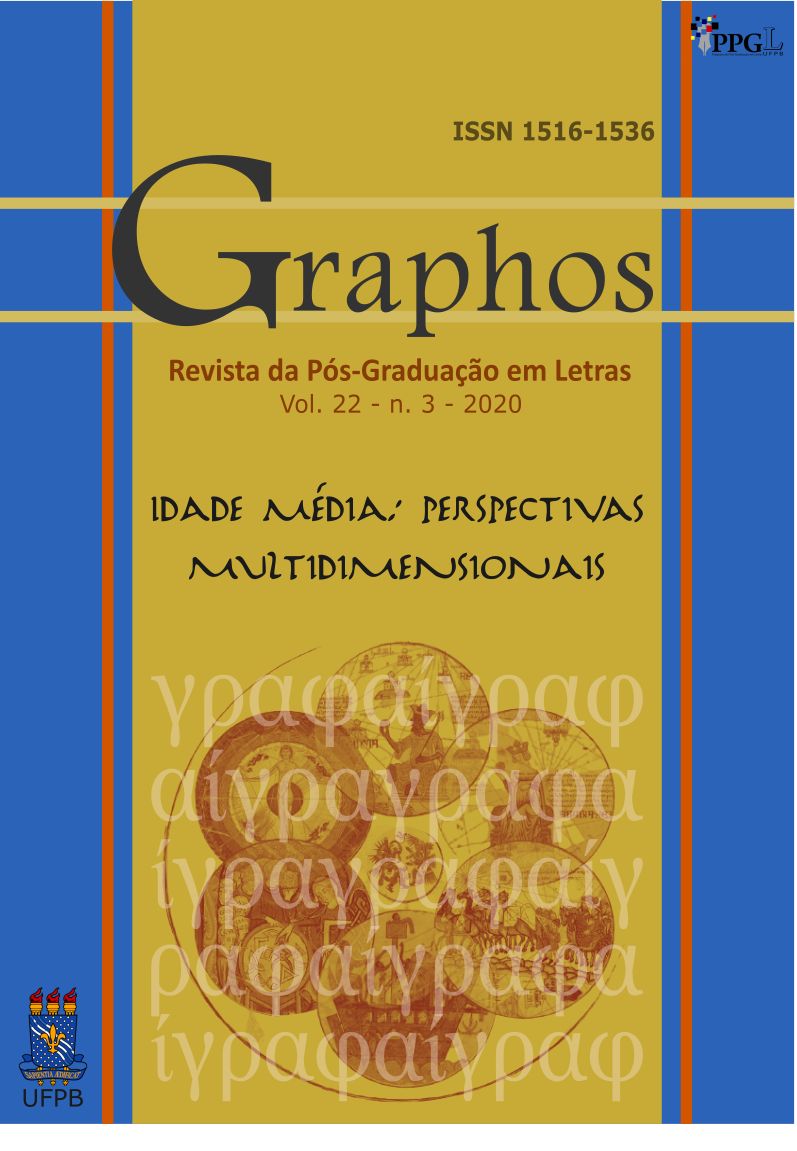Roots of medieval scholastics in the Valladolid controversy about the legitimacy of the conquest of the indies
DOI:
https://doi.org/10.22478/ufpb.1516-1536.2020v22n3.52715Keywords:
Medieval thought, Valladolid Debate, Indigenous RightsAbstract
The Valladolid Debate (1550-51) was the emperor's consultative forum, of a legal, philosophical and theological nature, for the controversy over the legitimacy of the Conquest of the Indies. The contenders – the Dominican Fray Bartolomé de Las Casas, as representative of a good part of the Church and Doctor Sepúlveda, as humanist and defender of the encomenderos – debated about indigenous rights, civilization and barbarism, or the right to a just war against the indigenous. Little has been analyzed of medieval thought in this controversy, which Zabala, Dussel and Mignolo consider the framework of early modernity. The corpus analyzed is Sepulveda's Democrates Alter and Las Casas' Brief History of the Destruction of the Indies, as an idealizer, theoretician and defender of indigenous rights and Sepulveda as the alma mater of modern imperial thought (RODRIGUES, 2006, 2010) and of the Revolution of the Twelfth Replica of Las Casas with regard to the final and surprising evolution of Las Casas' thought on the Conquest of the Indies (VIDAL APRIL, 1984). It is concluded that there is a considerable influence of medieval and Thomistic thought, especially in both contenders of the debate on the Conquest of America.
Downloads
References
ABRIL-CASTELLÓ, Vidal. La Bipolarización Sepúlveda-Las Casas y sus Consecuencias: la Revolución de la Duodécima Réplica. In: Ramos, García, Pérez et al (Org.) La Ética en la Conquista de América. Madrid: CSIC, 1984.
ANABITARTE, Héctor. Bartolomé de las Casas. Madrid: Labor, 1992.
DUMONT, JEAN. El amanecer de los derechos del hombre – La controversia de Valladolid, Ediciones Encuentro: Madrid, 1997.
DUSSEL, Enrique. Ética de la Liberación en la época de la globalización y la exclusión. Madrid: Trotta, 1998.
FUENTES, Carlos. La Gran Novela Latinoamericana. Madrid: Alfaguara, 2011.
FOUCAULT, Michael. Vigilar y Castigar: Nacimiento de la Prisión. (Trad. Aurelio Garzón). Buenos Aires: Siglo XXI Ediciones, 2002.
HANKE, Lewis. La lucha por la justicia en la conquista de América. Madrid: Istmo, 1988.
LAS CASAS, Bartolomé de. Brevísima Relación de Destrucción de Indias. Medellín: Editorial Universidad de Antioquia, 2006.
LOSADA, Ángel. Juan Ginés de Sepúlveda a través de su “Epistolario” y nuevos documentos. Madrid: CSIC, 1973.
PEREÑA, Luciano. La ética en la conquista de América. Francisco de Vitoria y La escuela de Salamanca. Consejos Superior de Investigaciones Científicas: Madrid 1984.
PÉREZ DE TUDELA, Juan. Obras Escogidas de Fray Bartolomé de las Casas: Opúsculos, Cartas y Memoriales. Madrid: Atlas, 1958.
RODRIGUES, Juan Pablo. Bartolomeu de las Casas: a pena contra a espada. 2006. Dissertação (Mestrado). Programa de Pós-Graduação em Letras, Universidade Federal de Pernambuco, Recife, 2006. Disponível em: https://repositorio.ufpe.br/handle/123456789/7816.
RODRIGUES, Juan Pablo. Juan Ginés de Sepúlveda: Gênese do pensamento imperial. 2010. Tese (Doutorado). Programa de Pós-Graduação em Letras, Universidade Federal de Pernambuco, Recife, 2010, in: https://repositorio.ufpe.br/handle/123456789/7053.
SEPÚLVEDA, Juan Ginés de. Democrates Segundo. Pozoblanco: Ayuntamiento de Pozoblanco, 1997.
SEPÚLVEDA, Juan Ginés de. Exhortatio Ad Carolum V. In: LOSADA, Ángel. Tratados Políticos de Juan Ginés de Sepúlveda. Madrid: IEP, 1963.
SOMEDA, H. Reflexión histórica sobre Bartolomé de Las Casas y la leyenda negra. Temuco: Universidad Católica de Temuco, 2012.
Downloads
Published
Issue
Section
License
Copyright (c) 2020 Juan Pablo Martín

This work is licensed under a Creative Commons Attribution 4.0 International License.







